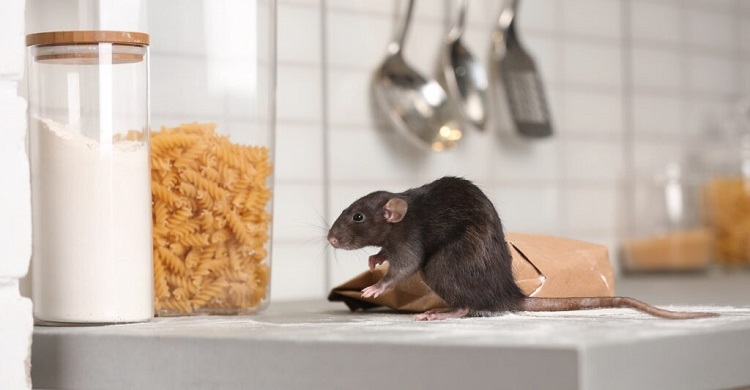How Rodent Control Prevents Structural Damage in Homes
Rodents such as rats and mice are more than just unwelcome visitors in your home; they pose a significant threat to its structural integrity. Left unchecked, these pests can cause extensive damage to wiring, insulation, and even foundational elements, leading to costly repairs and unsafe living conditions. Effective rodent control is essential for maintaining a safe and secure home environment. This article explores the various ways rodents damage homes and how proactive measures can mitigate these risks.
Table of Contents
Understanding the Threat Rodents Pose
Rodents are notorious for their ability to chew through almost any material, including wood, plastic, and even metal. Their constant gnawing, driven by their ever-growing teeth, makes them a significant hazard in residential properties. Beyond structural damage, they can also contaminate food supplies and spread diseases, making their presence a dual threat to health and property.
Common Types of Structural Damage Caused by Rodents
Damage to Electrical Wiring
One of the most dangerous issues caused by rodents is their tendency to chew through electrical wires. This behavior increases the risk of electrical shorts, power outages, and, in severe cases, house fires. Studies indicate that rodents are responsible for a significant number of electrical fires in homes each year.
Destruction of Insulation Materials
Rodents often tear apart insulation in walls and attics to create nests. This destruction not only reduces the energy efficiency of your home, leading to higher heating and cooling costs, but also makes it harder to regulate indoor temperatures.
Compromised Wooden Structures
Rodents gnaw on wooden beams, floorboards, and wall studs, potentially weakening the structural integrity of the home. Over time, this can lead to sagging floors, cracked walls, and other significant issues.
Plumbing Damage
Rodents can chew through PVC pipes, causing leaks that lead to water damage, mold growth, and increased utility bills. This type of damage is particularly problematic because it often goes unnoticed until significant repairs are required.
The Role of Rodent Control in Protecting Your Home
Effective rodent control involves both preventive measures and active intervention to eliminate infestations. Here’s how it helps safeguard your home:
Early Detection and Prevention
Professional rodent control services use advanced techniques to identify signs of rodent activity early. By addressing infestations promptly, homeowners can prevent minor issues from escalating into major structural damage.
Sealing Entry Points
Rodent control experts identify and seal entry points such as cracks in walls, gaps in roofing, and openings around utility lines. This step is crucial in preventing rodents from gaining access to your home in the first place.
Use of Safe and Effective Rodent Removal Methods
Modern rodent control methods focus on environmentally friendly and humane solutions to eliminate pests. From traps to bait stations, these techniques ensure rodents are removed without causing harm to other wildlife or pets.
Protecting Vulnerable Areas
Rodent control services often include safeguarding vulnerable areas like attics, basements, and crawl spaces. This involves installing barriers, reinforcing materials, and setting up deterrents to keep rodents at bay.
DIY Measures to Complement Professional Rodent Control
While professional rodent control is highly effective, homeowners can take additional steps to deter rodents and protect their homes:
- Keep Food and Waste Secured: Store food in airtight containers and dispose of garbage promptly to eliminate attractants.
- Maintain a Clean Environment: Regular cleaning, especially in kitchens and storage areas, removes potential nesting materials and food sources.
- Trim Vegetation: Overgrown bushes and tree branches close to the house provide easy access for rodents. Keeping vegetation trimmed can reduce this risk.
- Inspect Regularly: Periodic inspections of your home’s exterior and interior can help you spot signs of rodent activity early.
Signs You May Have a Rodent Problem
Identifying a rodent infestation early can save you from extensive damage. Common signs include:
- Droppings in cabinets, drawers, or corners
- Gnaw marks on furniture, wires, or food packaging
- Scratching noises in walls, ceilings, or attics
- Tracks or tail marks in dusty areas
- Nests made from shredded paper or fabric
The Long-Term Benefits of Rodent Control
Investing in rodent control is not just about eliminating pests but also about ensuring the long-term safety and durability of your home. Effective rodent control:
- Prevents Expensive Repairs: Addressing rodent issues early reduces the likelihood of costly structural damage.
- Enhances Home Value: A rodent-free home is more appealing to potential buyers and renters.
- Improves Health and Safety: Eliminating rodents reduces the risk of diseases and allergens, creating a healthier living environment.
Conclusion
Rodent control is a vital aspect of home maintenance that protects your property from the extensive damage these pests can cause. From chewing through wiring to destroying insulation and wooden structures, the impact of rodents can be devastating. By investing in professional rodent control services and adopting preventive measures, homeowners can ensure their property remains safe, secure, and structurally sound for years to come. Don’t wait for small signs to turn into major problems—act now to safeguard your home.

